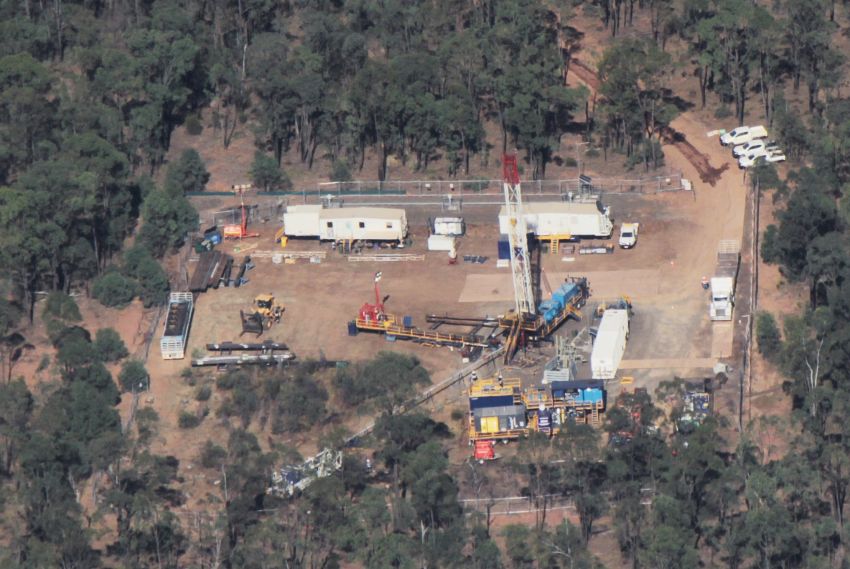
Oil and gas company Santos lodged a 36-page Narrabri Lateral Pipeline Scoping Report, on December 23 with the New South Wales government, for the “missing link” to connect the Narrabri Gas Project with the yet-to-be constructed Hunter to Queensland gas pipeline, now also owned by Santos.
Without the missing link pipeline gas from the Pilliga State Forest could not be transmitted out of the Narrabri to the existing gas transmission network, near Newcastle. The 55-kilometre steel pipeline will mean clearing an estimated 120 hectares of native Pilliga Forest.
NSW Premier Dominic Perrottet declared Santos’ proposed “lateral pipeline” as "critical state significant infrastructure”. This means it can be given fast-track approval and allow Santos to bypass public consultation.
According to Santos, there would be no cumulative impacts and no cumulative impacts with atmospheric emissions, gases, biodiversity or bushfire risk.
The scoping report is supposed to provide the NSW Department of Planning with the issues a company would be required to address in its Environmental Impact Assessment (EIS).
But the report contains misinformation and lacks critical information. For instance, it fails to give any detail on compressor stations and the associated inbuilt venting infrastructure which would be required.
The Cumulative Impact Assessment Guidelines for State Significant Projects describes “cumulative impact” as being “a result of incremental, sustained and combined effects of human action and natural variations over time and can be both positive and negative.
“They can be caused by the compounding effects of a single project or multiple projects in an area, and by the accumulation of effects from past, current and future activities as they arise.”
Santos claims that there are no cumulative impacts on atmospheric emissions, gases (such as from high point vents and low point drains), biodiversity or bushfire risk are plainly false and misleading.
This assertion cannot be left unchallenged.
While the Scoping Report is not subject to public exhibition, like the EIS, it is nevertheless important to be scrutinised before the indicative Environmental Assessment Requirements are established.
The guidelines also seek to encourage greater collaboration between the proponent of the project and any other people or groups “interested in seeking to minimise the cumulative impacts of development in the wider area over time, including government agencies, councils, the proponents of other relevant projects and the community”.
Despite the many examples showing that gas infrastructure routinely leaks, Santos has the temerity to claim in its Report that atmospheric emissions would not warrant a detailed environmental assessment.
Santos could operate the equipment in a way that was less damaging to the environment. But it is expensive and eats into profits.
Faulty valves, broken vents and a myriad of technical problems have already been shown to be standard operational features in Santos’ gas projects.
One example, which North West Protection Advocacy (NWPA) reported to the NSW Environment Protection Authority, are the multiple vents at the Pilliga exploration field that were subsequently repaired, but which had been leaking for an unknown length of time. Another example is the closed-in gas well, Bohena 3, which was also found to be leaking.
Another gas well from Santos’ Fairview gasfield in Queensland, reported as leaking by NWPA to the Department of Environment and Science in 2018 was subsequently shut in.
[This is an abbreviated report by North West Protection Advocacy on January 17. Sign this petition to support the Gomeroi people whose have said no to Santos mining for gas in the Pilliga.]